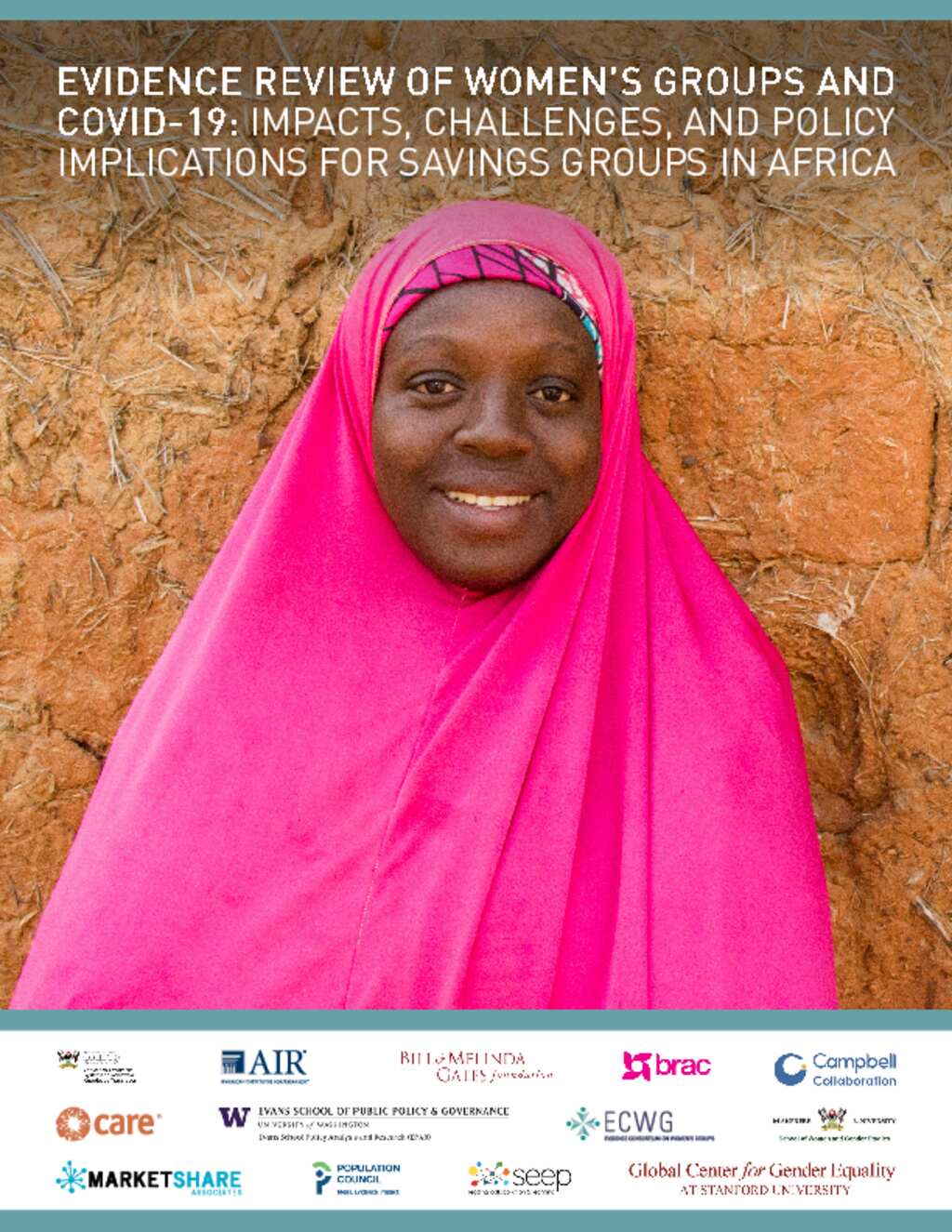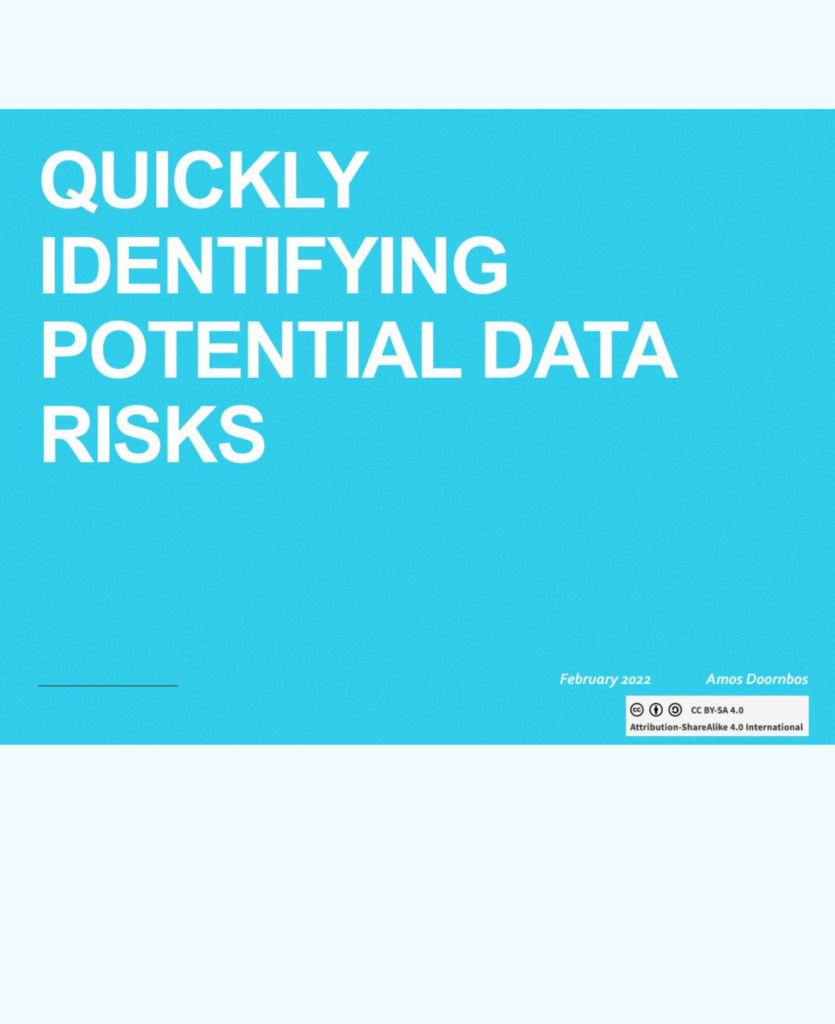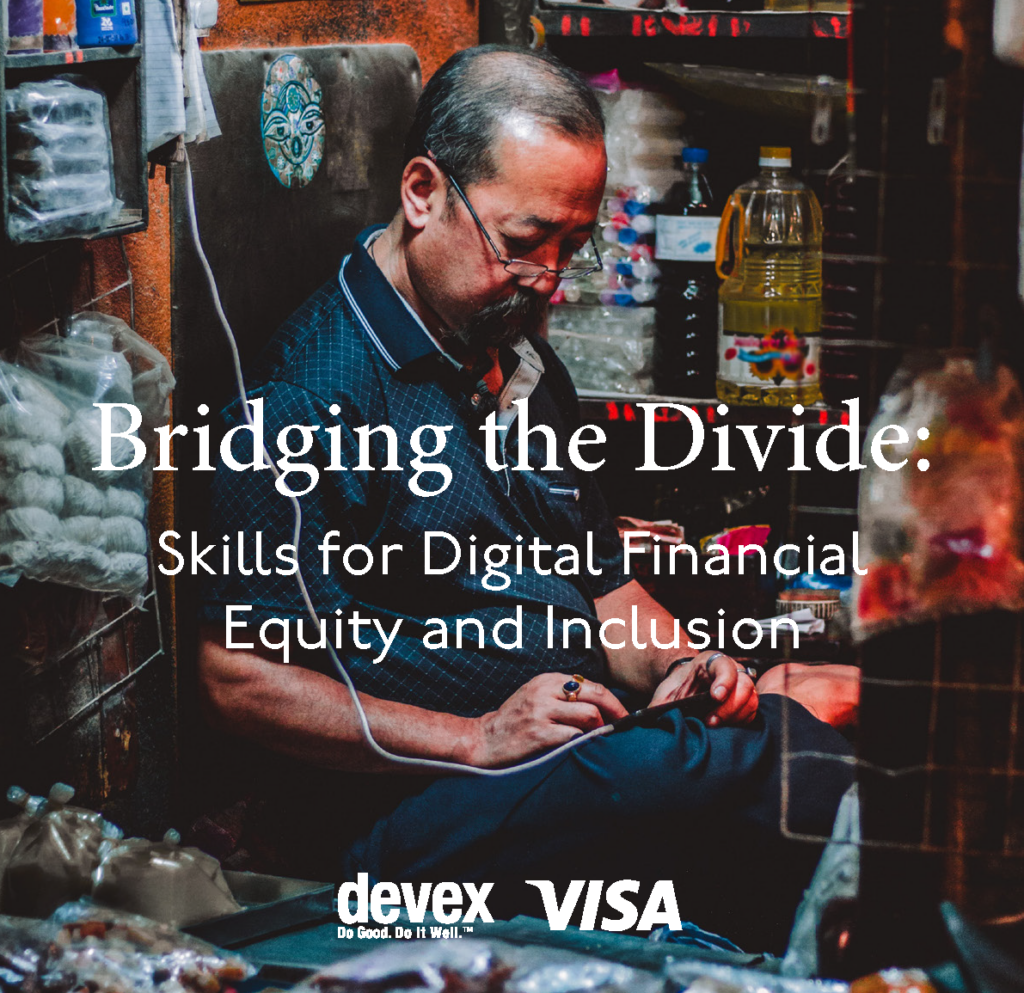
Brief
Evidence Review of Women’s Groups and COVID-19: Impacts, Challenges, and Policy Implications for Savings Groups in Africa
This learning brief examines the effects of the COVID-19 pandemic on women’s savings groups in diverse African contexts and explores how the shift to digitization impacted these groups and their members. Conclusions indicate that women’s savings groups contributed to resilience to economic challenges associated with the pandemic. For example, households with a female member in a savings group were less likely to experience food insecurity and were more likely to have savings than those without members. Digitization and other adaptations contributed to the ability of savings groups to continue operating during the pandemic, for example through the use of virtual meetings and electronic payment technologies. Some groups with bank accounts increased their use of mobile money to save and let members access their savings and some used WhatsApp to update their records. The brief points out, however, that while the use of virtual meetings and mobile money helped those with access to technology, the shift to digitization created barriers for the most marginalized women. It is therefore critical to examine the impact of digitization in light of existing gender disparities in ownership of and access to digital devices and digital skills. The brief further emphasizes that limited evidence exists on the ability of virtual groups to achieve the same results as groups meeting physically, especially as they relate to outcomes such as leadership, solidarity, and women’s social empowerment.
This brief is intended for policy- and decision-makers in governments, non-governmental organizations, and donors who aim to strengthen savings groups with the objective of achieving improvements in women’s empowerment and economic outcomes. Organizations that plan to introduce technology to savings groups will also find this brief helpful. The resource is available in English and French.


